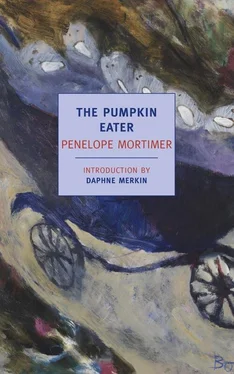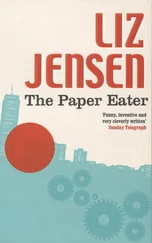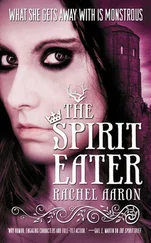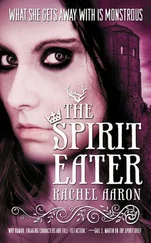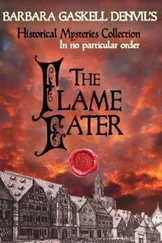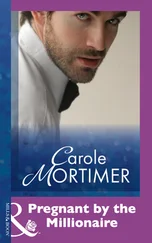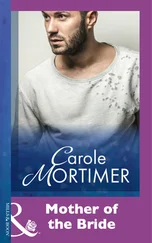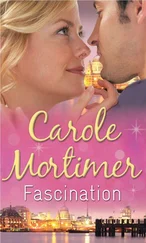At the novel’s end Mrs. Armitage, having undergone the same abortion and sterilization that Penelope Mortimer did, has moved into the empty tower, “a cell of brick and glass,” “inaccessible to reality,” to ruminate on what has brought her to such a pass. She cuts herself off, takes the telephone receiver off its rest, orders no food. “I wanted to get away.” In an effort to form a persuasive image of herself that would help her to believe in the actuality of her own life, she thinks about her marriage of twenty-four years, her many children, and summons up the rites of homemaking: “I stood over stoves, stirring food in a saucepan; I bent and picked things up from the floor; I stepped from side to side in the ritual of bed-making; I ran to the garden calling ‘Rain!’ and stretched up for the clothes-pegs, cramming them into one fist and hurrying in, bedouined with washing.” She considers and rejects the idea of suicide: “To be dead would be a perfect solution for me, I thought. But I couldn’t bear the idea of pain, the possibility that I would be a broken mess on the gravel, bleating for help.” And then, at the end of the third day of her vigil, her children come to fetch her — “They came up over the brow of the hill spread out, like beaters” — followed by Jake. This unsentimental ending, true to the author’s blisteringly disillusioned view of life, offers no more than a reconciliation of sorts — an inconclusive, tentative, and temporary reprieve from anguish.
Although The Pumpkin Eater was not Penelope’s favorite book — that place was taken by a later novel, Long Distance — it is the one that garnered her the most critical acclaim, with the film version no doubt helping to broaden its audience. Its reception did not fail to register with Penelope, but she didn’t seem quite to know what to make of it, given the exigencies of her own drama-filled life: “The success of The Pumpkin Eater pleased me,” she wrote in About Time Too , “though I couldn’t understand it. The literary establishment, with its clubs and societies and guilds and conferences, wine and cheese, coffee and buns, was kindly. Lacking any urge to join in or get together or be organized I didn’t understand what it was for, and I still don’t. Perhaps I missed many golden opportunities — but to do, to be what? Nothing I wanted.”
The response, in its “is that all there is?” sense of desolation, is vintage Penelope, but what she had written is in fact a lapidary classic of the interior life. I have read The Pumpkin Eater several times and never fail to be surprised by its immediacy, the way it has of bringing you into its confidence, as though you and the distraught, isolated woman at its center were old friends. Despite the passage of more than four decades, its concerns — the essential differences between men and women when it comes to matters of love and sex, the loneliness at the heart of life that can’t be assuaged by marriage or children — have not dated. It could have been written yesterday, and in its lucid examination of the fragility that haunts even our most robust endeavors I suspect it will have something urgent to say to generations of readers to come.
In real life Penelope Mortimer would continue to experience anguish of all sorts; her keenest sense of herself seems to have been that of “pressing my nose to the world’s window like some famished outcast.” She had trouble letting go of her obsessive relationship with John even as they lived apart, failed to find gratification from her literary acclaim, and missed her children — especially her son, Jeremy — as they grew up and away. But finally she was resilient; she didn’t go the way of Sylvia Plath or Anne Sexton. She continued to write, came to New York to teach, and made it through to the age of eighty-one, living on her own in a cottage in the Cotswolds, where she had become an avid gardener. “Owning land,” she wrote at the close of her second memoir, which ends in 1978 (although it was only published in 1993), “made some stubbornly preserved part of me emerge rampant, sweeping the rest out of sight.”
— DAPHNE MERKIN
Peter, Peter, Pumpkin eater,
Had a wife and couldn’t keep her.
He put her in a pumpkin shell
And there he kept her very well.
1
“Well,” I said, “I will try. I honestly will try to be honest with you, although I suppose really what you’re more interested in is my not being honest, if you see what I mean.”
The doctor smiled slightly.
“When I was a child my mother had a wool drawer. It was the bottom drawer in a chest in the dining room and she kept every scrap of wool she had in it. You know, bits from years ago, jumpers she’d knitted me when I was two. Some of the bits were only a few inches long. Well, this drawer was filled with wool, all colours, and whenever it was a wet afternoon she used to make me tidy her wool drawer. It’s perfectly obvious why I tell you this. There was no point in tidying the drawer. The wool was quite useless. You couldn’t have knitted a tea-cosy out of that wool, I mean without enormous patience. She just made me sort it out for something to do, like they make prisoners dig holes and fill them up again. You do see what I mean, don’t you?”
“You would like to be something useful,” he said sadly. “Like a tea-cosy.”
“It can’t be as easy as that.”
“Oh no. It’s not at all easy. But there are other things you can make from wool.”
“Such as?”
“Hot water bottle covers,” he said promptly.
“We don’t use hot water bottles. Balls you can make, for babies. Or small golliwogs.”
“The point you are trying to make is that tidying the wool is a useless and probably impossible task?”
“Yes.”
“But you are a human being. The consequences of your … muddle are more grave. The comparison, you see, is not a true one.”
“Well, it’s how it feels to me,” I said.
“When you cry, is that how it feels? Hopeless?”
“I just want to open my mouth and cry. I want to cry, and not think.”
“But you can’t cry for the rest of your life.”
“No.”
“You can’t worry for the rest of your life.”
“No.”
“What do you worry about , Mrs. Armitage?”
“Dust,” I said.
“I’m sorry?”
“Dust. You know? Dust.”
“Oh,” he said, and wrote for a while on a long piece of paper. Then he sat back, folded his hands and said, “Tell me about it.”
“It’s very simple. Jake is rich. He makes about £50,000 a year, I suppose you’d call that rich. But everything is covered with dust.”
“Please go on.”
“It’s partly the demolition, of course. They’re pulling down the houses all round us, so you have to expect a bit of dust. My father bought the lease of the house for us when we got married, that was thirteen years ago.”
“You have been married for thirteen years,” he said, writing it down.
“To Jake, yes. There were thirteen years of the lease to run when my father bought it. He bought it for £1,500 and we pay a peppercorn rent, so you see we’re very lucky. Anyway. I was trying to tell you about the dust.”
“So your lease expires this year.”
“I suppose so. We’re building a tower in the country at the moment.”
“A tower?”
“Yes.”
“You mean … a house?”
“No. A tower. Well, I suppose you could call it a house. It’s a tower, though.”
He put his pen down carefully, with both hands, as though it were fragile. “And where is this … tower?” he asked.
Читать дальше
